Lamb of God is a groove metal band from Richmond, Virginia. The classic line-up—vocalist Randy Blythe, guitarists Mark Morton and Willie Adler, bassist John Campbell, and drummer Chris Adler—spent the 2000s becoming the best groove metal band on Earth by taking Pantera’s sound and streamlining it. They don’t like to evolve musically, which has been an effective career move thanks to the seemingly infinite well of snakey earworm riffage from Morton and Adler, tight compositions, and Blythe’s smart writing. Indeed, they’re more resistant to evolution than Evangelicals. In criticizing political debate in the US, Blythe accidentally stumbled into a succinct summation of the band’s career: “Repeat, echo, refrain / It’s all the same, so deafening.” Whoops. Anyhow, this is a motherfucking invitation, the only one you could never need, to read on.
10. Burn the Priest (1999)
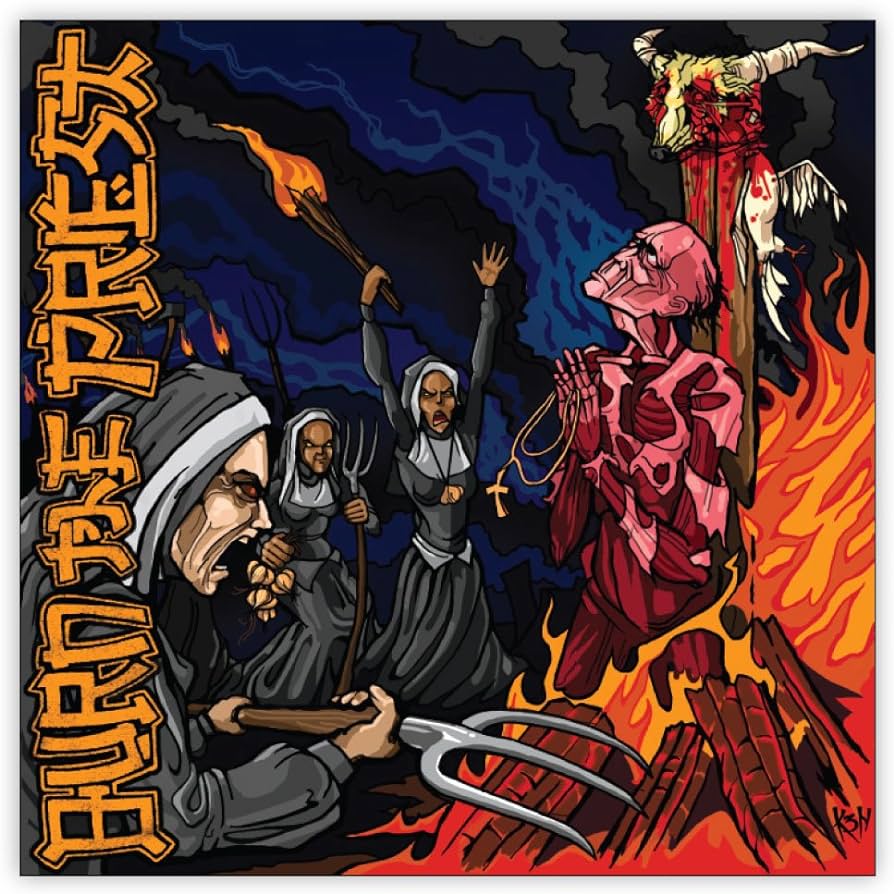
Lamb of God’s debut LP, and the only one recorded under their original name, is a mess. Mixing sludge-y metalcore, death metal, and grindcore, the material is closer to haphazard stitch-jobs than songs. Terror is favored over coherence, just like the modern Republican platform. As such, the intensely-played material comes off as aimless flailing for attention, like a child acting out because they’re not getting noticed. Occasionally, the world-beating groove metal they’d perfect on later records shines through. Outside of Adler’s drumming, though, “Burn the Priest” is an almost entirely unrecognizable version of LoG. It doesn’t help that Blythe’s writing wanders into the deeply abstract, often brushing up against word salad: “Flickering lies, glazed cornea, creating cerebral corpses / A senseless data overload, a prime-time hypnosis, bow to idiot box.” “Burn” is an unfortunate misfire on its own, and becomes a failure in retrospect.
Play it again: um, maybe try “Lies of Autumn” or “Suffering Bastard”?
Skip it: the band ignores its existence (see below), and so should you
9. New American Gospel (2000)
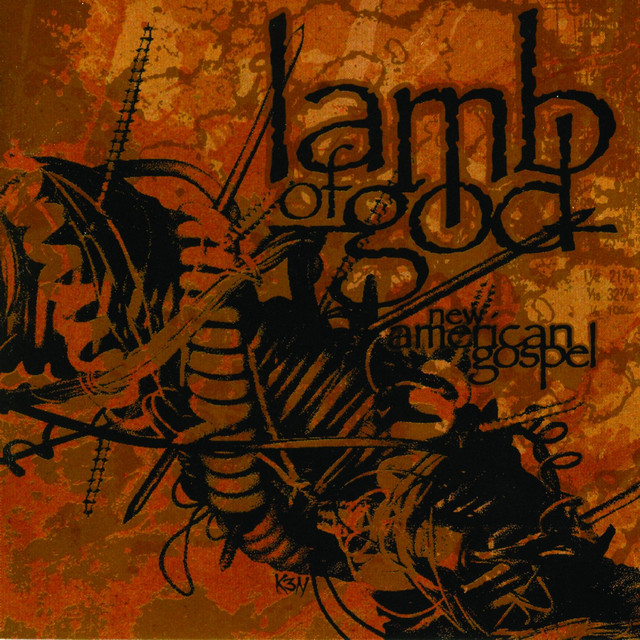
LoG’s second album, and first under their current name, finds them trying to figure out their sound and identity in real-time. As such, the playing is stiffer than an NRA member holding a gun, and the songwriting more unfocused than a Zach Snyder superhero film, as the band works out the kinks. There are moments where their stadium-sized groove metal peaks out, but the record is largely just a slightly organized version of “Burn the Priest.” And much like the song titles here, the compositions require trimming. Meanwhile, Blythe was still finding his voice, both as vocalist and writer. His relies too much on an ill-fitting tortured shriek, and his pithy commentary wasn’t fully developed. The weakest aspect is the production, which is rougher than wiping with sandpaper. Overall, “New American Gospel” is an interesting listen but not a compelling one.
Play it again: “In the Absence of the Sacred” and “The Subtle Arts of Murder and Persuasion”
Skip it: “Terror and Hubris in the House of Frank Pollard”
8. Resolution (2012)
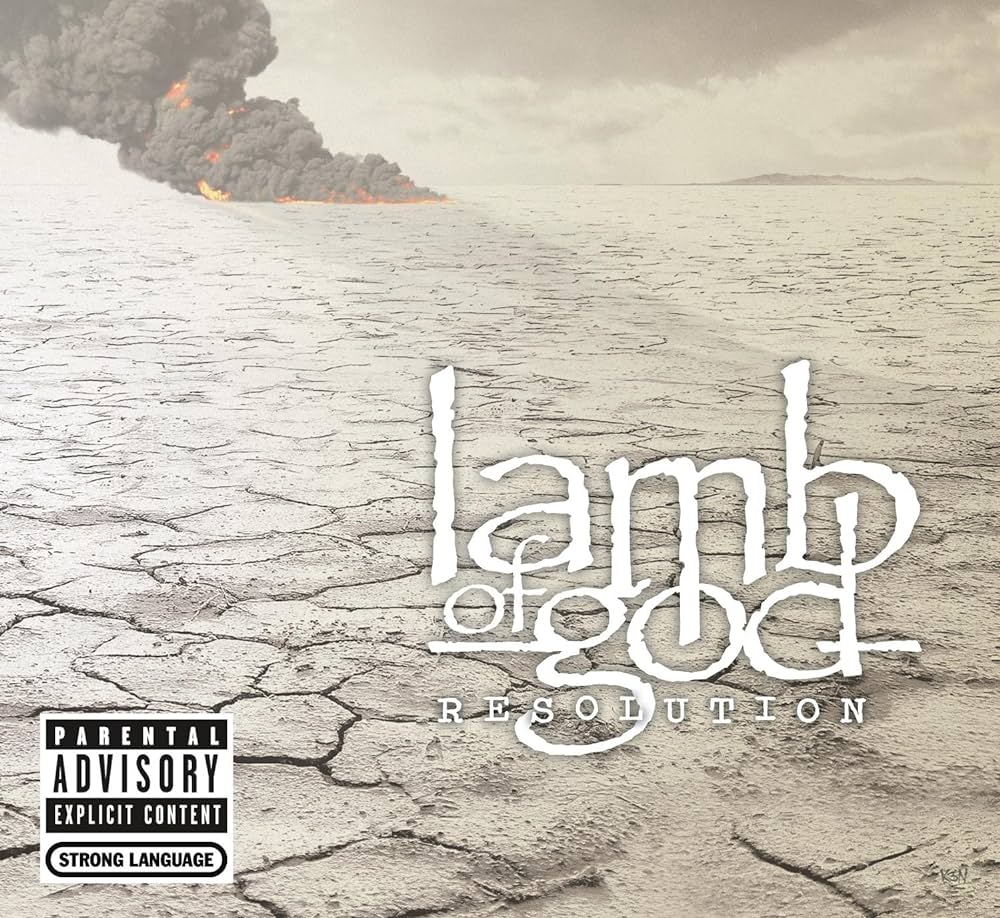
The band’s hot streak ends here. “Resolution” is the sound of a band making a record out of obligation rather than creativity. Indeed, the barren wasteland on the cover is almost comically self-aware. With 14 songs across 56 minutes, the record feels like a student padding the word count with “Thus, in conclusion, the following is the summation of the thesis stated above” in an effort to conceal the lack of depth. Despite a handful of killer riffs, as well as a Herculean effort from Adler trying to drum his way into something interesting, the album is filled with good-not-great songs that pass by mostly as a monochrome blur. The breaks in monotony—a short soundscape called “Barbarosa” and an attempt at experimentation called “King Me”—are welcome distractions, but are not album-saving. “Ever get the feeling you’ve been cheated?” Blythe snarls on the record’s back half. Yeah, kinda.
Play it again: “Desolation”
Skip it: wouldn’t be missing much if ya did
7. Lamb of God (2020)
Despite a five-year gap between “VII: Sturm und Drang” and LoG’s eponymous tenth album, it’s as if they never left. The latter picks up right where the former left off, making “Lamb of God” a near-carbon-copy of “VII.” If there’s a difference musically, it’s that new drummer Art Cruz, while a talented musician and fine replacement, just does a wooden impression of Adler. The other difference—the real one—is Blythe’s writing. This is the most topical LoG record since “Ashes of the Wake” (see below). There’s a Trump-era reference (“Make America hate again”), as well as a song about the Dakota Acess Pipe Line, but Blythe avoids dating the album by discussing America’s failures in a broad way, including school shootings, consumerism, and anti-immigrant sentiment. He even makes time for his favorite hobby horse, greed: “Lash the tired and kill the poor / The coddled masses slam the golden door.” Even so, “Lamb” is more of the (excellent) same.
Play it again: “Memento Mori” and “Checkmate”
Skip it: “Bloodshot”
6. Omens (2022)
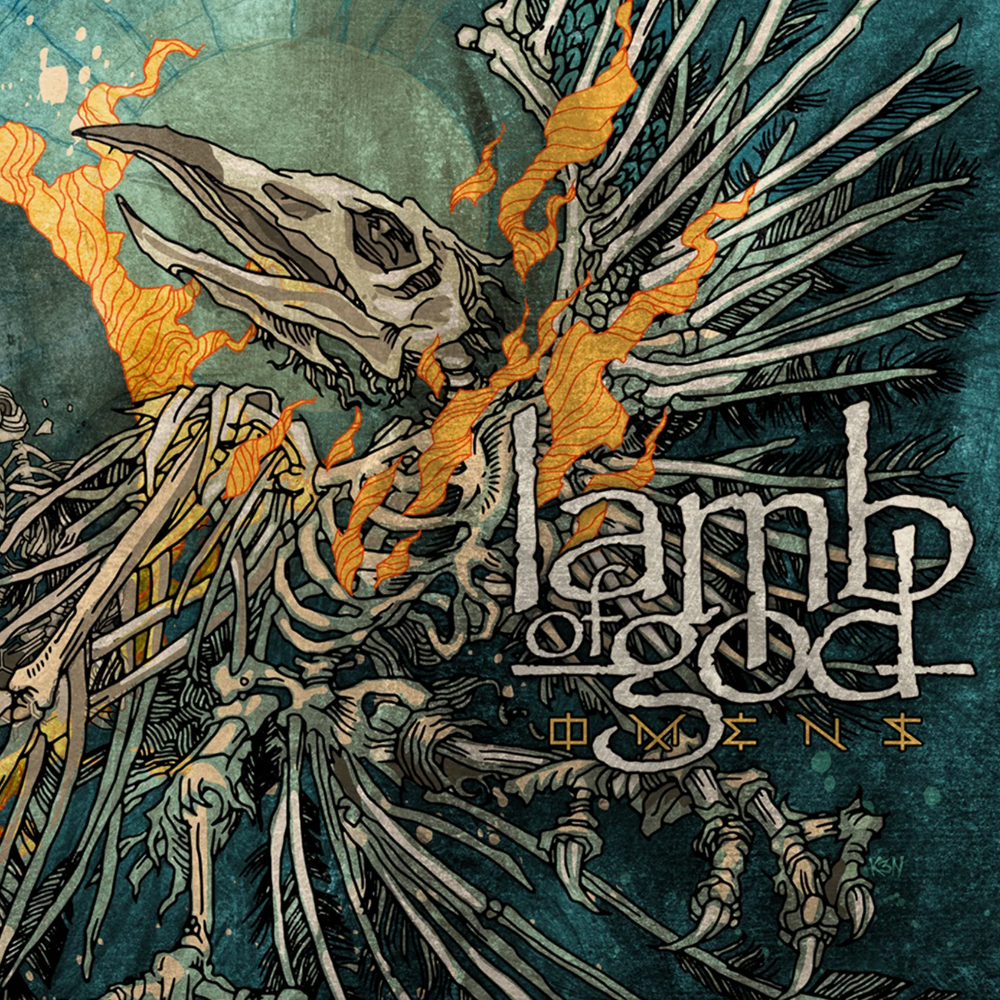
Like pretty much everyone else on Earth, the last coupl’a years wore Blythe the fuck out: “Everything is doomed to fail,” “Down in a ditch that you dug yourself,” “Fuck it all, ignore the omens,” etc. That didn’t stop him, and the rest of the band, from making essential music. Touring for a few years seems to have allowed Cruz to gel with the rest of the band; here, he sounds more comfortable. While “Omens” operates almost entirely in a mid-tempo fury, it’s as angry as the band’s ever been. You can view that as them slowing down as they approach (or are) 50. It’s just as valid to view it as them conserving their energy, however, since humanity doesn’t learn from its mistakes. This ensures they’ll be plenty for Blythe to be pissed off about into perpetuity. Thus, just like LoG’s sound, shit ain’t ever gonna change.
Play it again: “Nevermore” and the title track
Skip it: “Grayscale”
5. Wrath (2009)
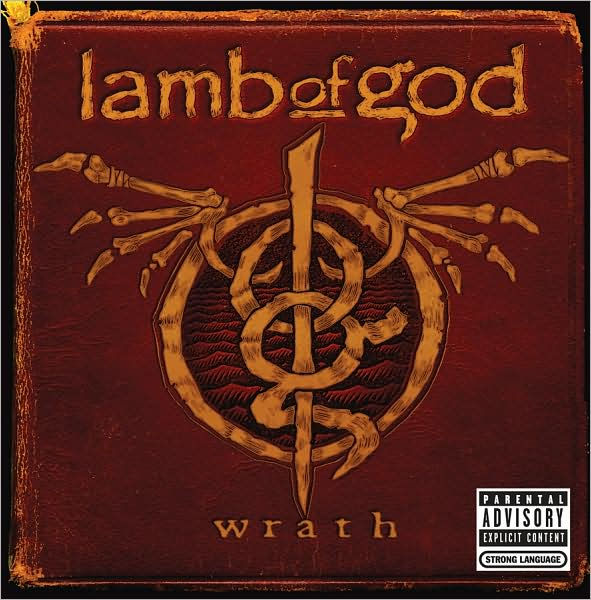
Perhaps as a reaction to the commercial songwriting and over-varnished production of “Sacrament” (see below), LoG got thrashier with “Wrath.” An emphasis on catchiness is traded for an emphasis on heaviness, with some of their most aggressive songs and performances to date. Fittingly, the album’s theme is failure (of humankind) and (self-)destruction as punishment: “Blindly consuming mass-manufactured faith / Mankind is a festering parasite / Relentlessly draining its host dry / Nailing belief to a cross of genocide.” Blythe also finds time to take (another) shot at US foreign policy: “Black liquid assets, fuck the Mujahideen / Paint their picket fences red with the American dream.” “Wrath” is LoG at their most brutal: an album-long, speedrunning beatdown.
Play it again: “In Your Words” and “Set to Fail”
Skip it: “Reclamation,” an engrossing but ill-fitting experiment
4. VII: Sturm und Drang (2015)
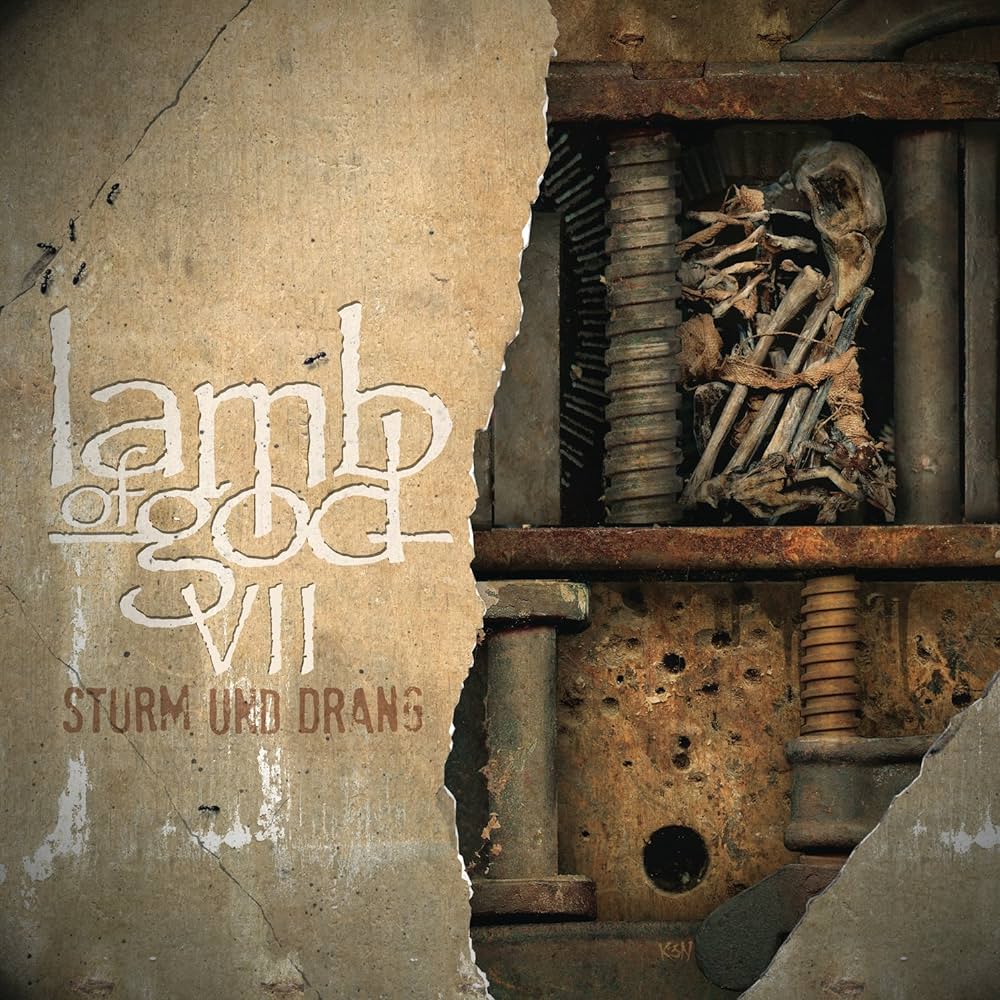
Apparently, staring down the barrel of several years in a Czech prison will make a person reflective and thankful for life itself. Who knew? Anyhow, LoG’s eighth album—even LoG thinks “Burn the Priest” was a mistake—is what “Resolution” shoulda been. Whereas they sounded too comfortable on “Resolution,” here they sound like they’re hungry (again) for world domination. Thus, the songwriting is a nasty combination of the unrelenting aggression of “Wrath” and the arena-readiness of “Sacrament.” There’s an immediacy to the songs, the playing, and Blythe’s writing (“It’s only what you do right here, right now, right this fucking instant that matters”), and some fun experimentation, including a talkbox solo (?!) and a “Fade to Black”-esque half-ballad/half-thrasher. And while there’s a theme of ending—eerily prescient that this was Adler’s last original album with the band—”VII” thankfully wasn’t their goodbye. Woulda be one helluva note to end on, though.
Play it again: “Still Remains” and “Erase This”
Skip it: “Torches”
3. Sacrament (2006)
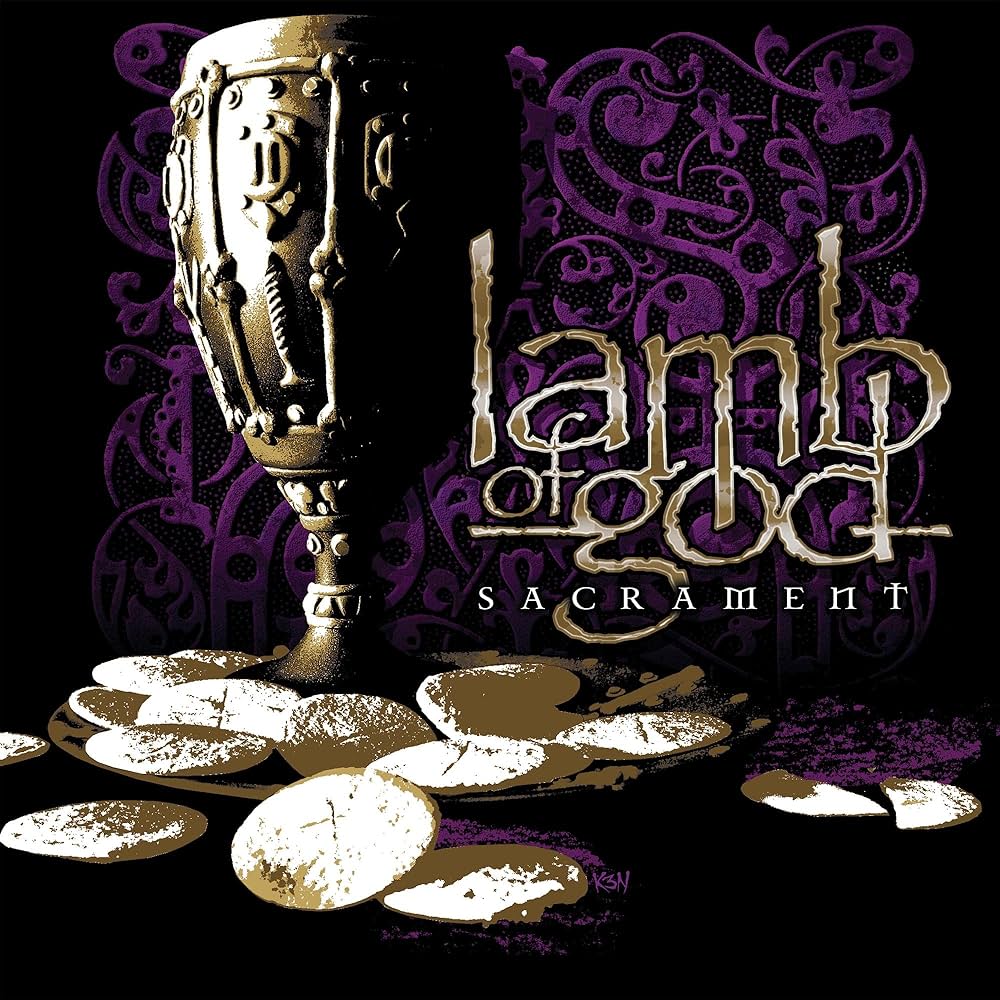
“Sacrament” is LoG at their sleekest. Here, the quintet leans all the way into radio-friendly composition, filled with arena-ready choruses, catchy riffing, and tidy soloing. Even Blythe’s writing reached new levels of terseness: “And in this Commonwealth / There’s merely a common concern for self.” The only real issue is the production: producer and engineer Machine spit-shines the songs into gleaming marble. The record is zero-friction slick, like a waterslide covered in lube. It’s sometimes a glaring distraction. Still, “Sacrament” is highly enjoyable in its overt commercial appeal, making it the band’s most fun full-length.
Play it again: “Walk with Me in Hell,” “Redneck,” and “Beating on Death’s Door”
Skip it: “More Time to Kill”
2. As the Palaces Burn (2003)
LoG’s superb third offering is the band’s true debut: where Lamb of God was truly born and Burn the Priest was thankfully aborted. Leaning into the thrash and groove aspects of their sound and sharpening the songwriting of the first two by stripping away the chaff—ie, the trying-to-be-scary tendencies—allowed the band to emerge as the new standard-bearers of groove metal. It’s here where Blythe found the phlegmy growl he’s known for and that answers the question, “What if mucus tried to sing?” He improved his politically observational pithiness, too: “Money, the excrement of labor” and “In such a world as this, does one dare to think for himself? / The paradox of power and peace will destroy itself.” “As the Palaces Burn” is their first no-skips record, but not their last.
Play it again: oh, for sure
Skip it: the muddy original version; instead, go for the terrific 2013 remix/remaster
1. Ashes of the Wake (2004)
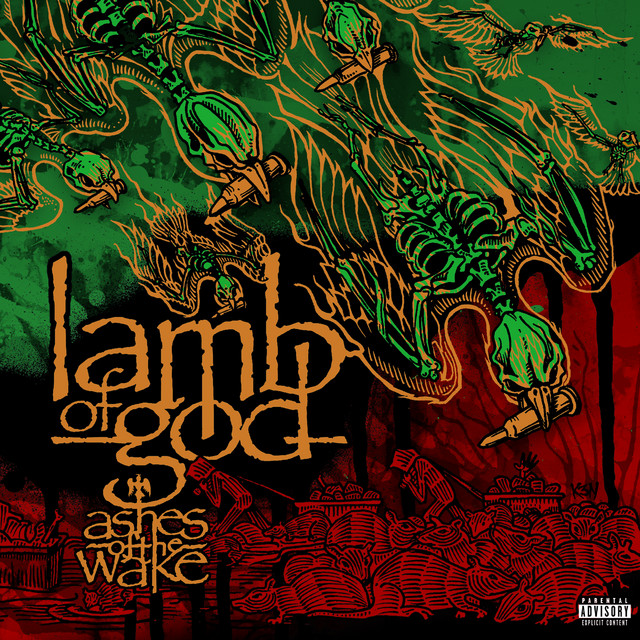
As you mighta guessed, this is LoG’s other no-skips album. It’s still their best work and a top-five metal record of the century. Everything is an upgrade from its predecessor: the riffs are earworm-ier, the songwriting and arrangements are sharper and smarter, and Blythe’s sloganeering lyricism is more vitriolic. On that last one, the anti-war and anti-Bush sentiment that permeates the album—“Bombs to set the people free / Blood to feed the dollar tree”—is brilliantly mirrored in the machine gun-esque staccato fire of the interlocking musicianship. The anger that the band (and much of the US) felt over the Iraq War is expressed in the band’s fervent playing and Blythe’s acerbic vocals and writing (“It’s when murder is justice that martyrs are made / A one-gun salute for the new Independence Day”). “Ashes of the Wake” is aptly named, since it torched every other metal release of 2004 (except for maybe “Leviathan” and “The End of Heartache”).
Play it again: the whole thing, right now—even the how-the-fuck-was-this-left-off b-side “Another Nail for Your Coffin”
Skip it: a more foolish decision than (re)electing Dubya




